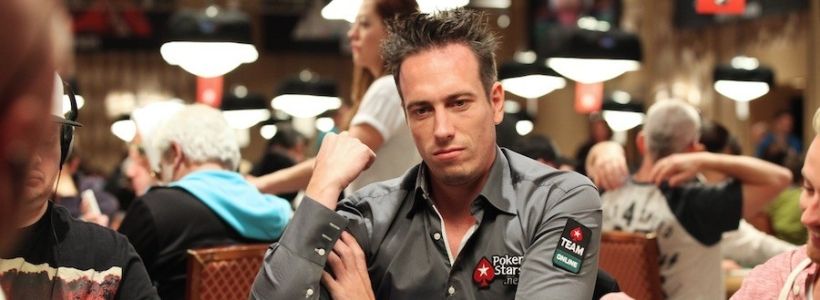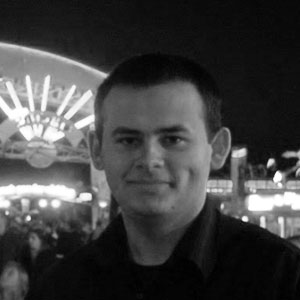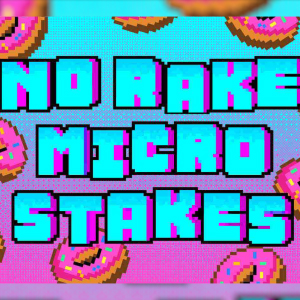Pro Player Training Regimen
9 years ago

31 Jul
(Photo: Pokerstars.com)
We all enjoy watching our favorite pros playing poker at the highest levels, both live and online, but it's easy to forget that those brief moments of glory are the effect of long hours of training. Like the famous engineer credited with the invention of telephone Alexander Graham Bell once said:
Before anything else preparation is the key to success."
What are some of the methods pro poker players use to become the best in the game?
It's all About Balance
While there are some examples of successful poker players who are also complete degens known for spending 40 hours straight in a casino or behind a computer screen, the success at a poker table is ultimately very hard to sustain if other parts of your life aren't on point. Daniel Negreanu is a great example of that. He cares about many different aspects of life that aren't directly poker related like nutrition and exercise. He's also deeply interested in the healthy mindset, self-image, visualization techniques, etc.
Lex Veldhuis is another interesting example of a successful poker player who transitioned from the degen poker lifestyle into something a lot more healthy and seeing as he was able to relatively quickly build one of the most popular poker Twitch streams in his time slot, it's safe to say that the transition paid off. There are numerous other examples of successful poker players with balanced lives and not very many stories of degens who managed to stay on top of the poker world for a long time.

Planning and Goal Setting
"People with goals succeed because they know where they're going", this quote by Eric Nightingale perfectly describes another quality of successful poker players and one of the integral parts of their training regimen. Everyone can randomly start a coaching video or read an article, but just like random a 30 minute piano session or one visit in the gym won't make you into a virtuoso musician or bodybuilder, one coaching video won't turn you into Phil Ivey.
The training routine of pro players is well structured and goal oriented. If you're primarily a live cash game player, learning about the game theory optimal approach might be a fun stimulating distraction, but it won't be very useful at the tables and you're much better off learning while playing the game since most of the educational materials out there are dedicated to online poker. Pro poker players borrow the principle of training specificity from other sports and adjust their training to be the most appropriate and relevant considering the desired outcome.

Great Minds Think Alike
When you read interviews with famous poker players they often point to "discussing hands with friends" as their preferred and the most effective form of training. This makes sense as, if you're somewhere around the 99.99th percentile when it comes to poker skill, the learning materials that are readily available on the market will be of limited use to you. This is why it makes a lot of sense to learn from and with others who are similarly skilled. This form of training isn't reserved for the pros either. Even if you're playing relatively modest stakes, learning with others can provide you with something that no other form of education offers - the external feedback.
We're often so caught up in our thought processes that it's almost impossible to evaluate them objectively and obvious leaks that we have can go unnoticed for a very long time if we don't have someone to point them out. Working with others has many other potential benefits like keeping each other disciplined and motivated, building a sense of community etc. With all of that in mind, it's easy to understand why many pros tend to favor this type of poker education over virtually anything else.

You're a (GTO) Wizard Ben
Some pro poker players at the cutting edge of poker strategy are so far ahead of the competition that they can't really follow anyone else, and the players that they could potentially learn something from aren't really in a rush to give up their edge. Instead of using the conventional forms of poker education like videos, books, articles or private coaching, they turn their gaze to some heavy duty poker software that allows them to analyze the game on a much deeper level.
While we're still a ways away from solving poker, (especially the variants with 3 or more players), tools like PioSolver and Poker Snowie can greatly expand their user's knowledge. While it could be argued that those tools are suboptimal for micro and small stakes players (or even medium to high stakes live players) where exploitative poker is still the king, the argument becomes much harder when we talk about the absolute best cash game players in the world.
Another powerful tool suitable for those players is Propokertools.com Poker Query Language. It's basically a quasi-programming language that allows users to get the answers to specific (and sometimes obscure) questions about poker like: "How often does the flop have no card higher than a nine?", "How often does a random Omaha hi/lo hand make nut-nut by the river?", "In a random heads-up hold'em match, how often does the best hand on the flop win?". The fact that even the best players in the world can't really answer those questions by heart goes to show how much we can still learn about the game using some of the advanced tools.







Comments
You need to be logged in to post a new comment